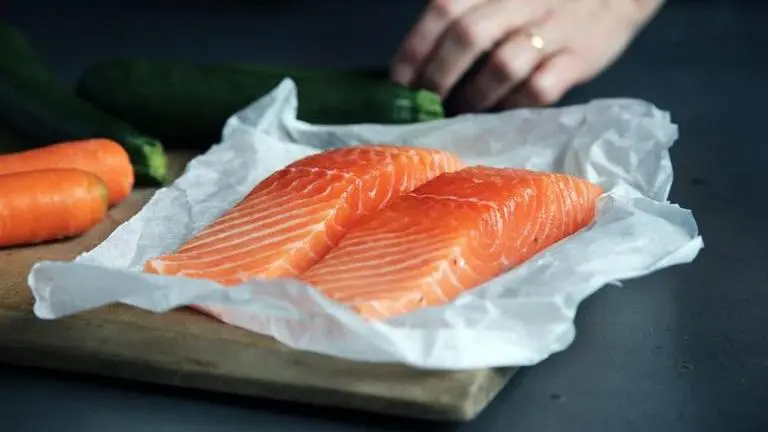Updated 9 September 2020 at 07:29 IST
Coronavirus: Salmon fish may carry the infectious virus, says study
According to researchers in China who investigated imported fish, coronavirus remaining on chilled salmon may be infectious for more than 1 week.
- Science News
- 2 min read

According to researchers in China who investigated imported fish, coronavirus remaining on chilled salmon may be infectious for more than 1 week. Researchers at the South China Agricultural University and Guangdong Academy of Agricultural Sciences in Guangzhou found that the SARS-CoV-2 virus, which is responsible for COVID-19, when collected from Salmon, can survive for 8 days at 4 degrees Celsius. The study suggests that the Chinese authorities have been investigating imported meat, packaging and containers as a potential source of Covid-19. This is been done since June after traces of the pathogen were found on food packaging.
Salmon as an infectious source
China’s customs authority in the month of July reportedly said that they detected the deadly coronavirus on the packaging of frozen white shrimps imported from Ecuador. While the tests on the shrimp and inner packaging were negative, the customs authority said that the samples taken from shipments from Industrial Pesquera Santa Priscila SA, Empacreci SA and Empacadora Del Pacifico Sociedad Anonima Edpacif had produced six positive results. After detecting the presence of COVID-19 in a shipment, China reportedly suspended imports from three shrimp producers in Ecuador.
Advertisement
The researchers said that the fish which is contaminated by SARS-CoV-2 can be transported from one country to another within a week’s span. This can be a source of international transmission. The study suggested that China had been importing about 40,000 to 100,000 tonnes of salmon each year before the pandemic hit the country. As a part of the study, the researchers bought fish from a shop in Guangzhou and then cut the meat into small cubes. They then treated the cubes with a solution containing the viral particles. The cubes were stored at different temperatures. A sample was taken out each day to test if the virus could infect normal cells. However, it was concluded that the lower the temperature, the longer the virus could survive.
Advertisement
(Image Credits: Unsplash)
Published By : Akanksha Arora
Published On: 9 September 2020 at 07:29 IST
